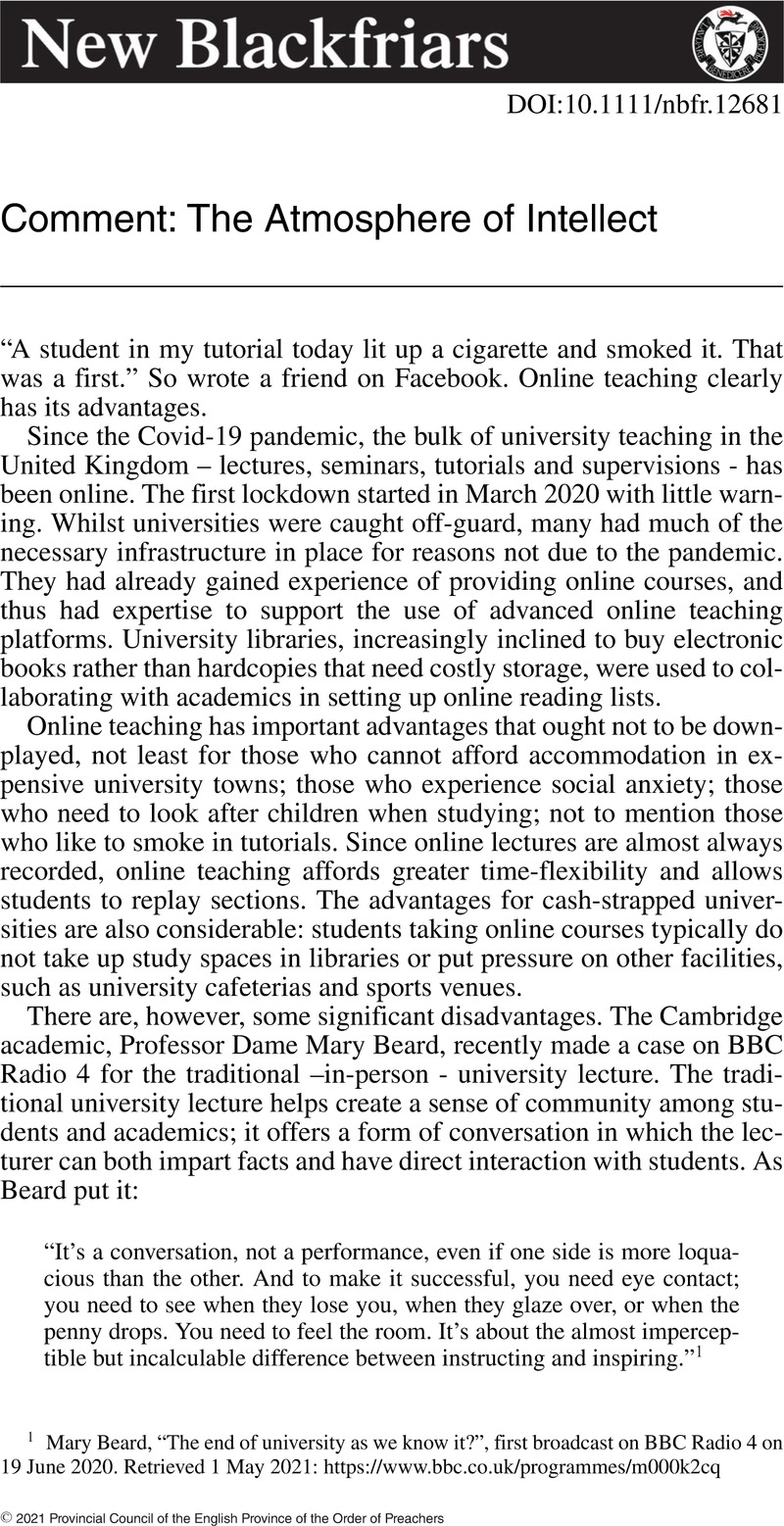No CrossRef data available.
Article contents
Comment: The Atmosphere of Intellect
Published online by Cambridge University Press: 01 January 2024
Abstract
An abstract is not available for this content so a preview has been provided. Please use the Get access link above for information on how to access this content.

Information
- Type
- Comment
- Information
- Copyright
- Copyright © 2021 Provincial Council of the English Province of the Order of Preachers
References
1 Mary Beard, “The end of university as we know it?”, first broadcast on BBC Radio 4 on 19 June 2020. Retrieved 1 May 2021: https://www.bbc.co.uk/programmes/m000k2cq
2 Newman, John Henry. The Idea of a University, Discourse 6.9. Numerous editions.
3 Simone Eringfeld, ‘Higher education and its post-coronial future: utopian hopes and dystopian fears at Cambridge University during Covid-19’, Studies in Higher Education 46(1) (2021), pp.146-157.

